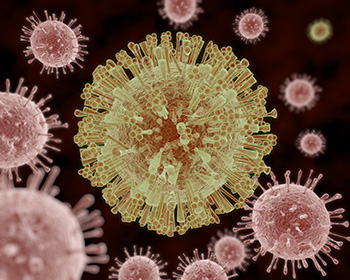Chief of New York City’s Zika Testing Lab is a Rutgers Graduate
Microbiologist Jennifer Rakeman’s work helps save lives

'I see public health as . . . the ultimate in that quest because we get to help save lives, 8.5 million at a time. The work that we do, you can see that it touches the lives of every single New Yorker every single day. Whether they know it or not, it does.'– Jennifer Rakeman
When the media started reporting on the Zika virus outbreak in South America earlier this year, Rutgers graduate Jennifer Rakeman knew she and her staff were in for a very busy 2016.
Rakeman is the assistant commissioner and laboratory director for the New York City Public Health Lab. Among her responsibilities is conducting testing when there is an outbreak of a disease, and when Zika hit the news, she knew the virus was going to make its way to New York.
“New York City is a place where a lot of people travel to and emigrate to,” Rakeman says. “We have many people living in New York City who were born in and visit countries impacted early on in this outbreak. We knew we were going to be doing a lot of testing here.”
Rakeman has been at the forefront of testing for Zika, with the lab conducting more than 8,000 tests. As of mid-September, there have been 550 positive results, including 58 for pregnant women.
Dealing with a disease such as Zika means processing new information as more is learned about it. The disease is transmitted mainly through the bite of the Aedes mosquito. While those mosquitoes aren’t in New York, Rakeman says a relative of it is, so there is testing of mosquitoes in New York City, even if it is unlikely the disease will be found in any of the city’s pests.
“We don’t expect that but we want to be prepared, just in case,” she says. “I’ve learned more about mosquitoes in the last months than I ever thought I’d need to know as a microbiologist, so we’re constantly learning.”
Her lab’s work in testing for Zika isn’t the first time Rakeman has dealt with a headline-making virus. In recent years, she directed the lab as it tested for Ebola for New York City, and for New Jersey before Jersey’s State Public Health Lab was able to test for Ebola. She also oversaw testing for Legionnaires’ disease during an outbreak in the Bronx in 2015.
The work that is done in Rakeman’s lab is a vital step in the process of keeping people healthy and controlling the spread of a disease such as Zika.
“Our job as a laboratory is to perform the testing,” Rakeman says. “When there is a positive result, those results go to our epidemiologist, who follow up with the patient’s provider, and they work with that provider to make sure that the patient gets appropriate follow-up.”
The Zika virus was identified decades ago, but few people ever heard of it before the outbreak that hit South America this year. Rakeman says that when there is an outbreak of an infection like Zika, the Centers for Disease Control and Prevention monitor it. The CDC has issued strict guidelines about who should be tested, giving priority to pregnant women with possible exposure to Zika and people with symptoms.
“The CDC was watching Zika very closely and then developed assays (tests) that were able to detect virus,” Rakeman says. “They had done that in previous years when there were small outbreaks that didn’t impact the United States.”

Rakeman’s path to this work began during her junior year at Rutgers. She grew up in Rockville Centre on Long Island and was always interested in science but began college studying art and math, partly, she says, because a high school chemistry teacher told her science wasn’t for girls.
Rakeman encountered a more encouraging environment at Rutgers. She was drawn to biology, but the biology major at Rutgers was geared toward pre-med students while research was her area of interest. She learned about the biotechnology major being taught at Cook College (now the School of Environmental and Biological Studies) and made that her major with a focus on microbial biotechnology.
“It's a very intense major and I started a little bit late, so my entire schedule in my junior and senior years was full of science courses and a lot of lab classes,” she says.
During those two years at Cook, Rakeman developed an interest in bacteriology and research. After graduating in 1994, she went on to the University of Washington in Seattle and earned a Ph.D. in microbiology.
She has been working for the New York Department of Health since 2009, and has held her current position since 2012, doing everything from testing potable water chemistry to looking into bio-threats such as testing letters with white powder in them.
She says her work fulfils her goals of doing good in the world and helping people.
“It may sound lofty and a maybe a little naïve, but I see public health as sort of the ultimate in that quest because we get to help save lives, 8.5 million at a time,” Rakeman says. “The work that we do, you can see that it touches the lives of every single New Yorker every single day. Whether they know it or not, it does.”
For inquiries, contact Carla Cantor at ccantor@ucm.rutgers.edu or 848-932-0555.